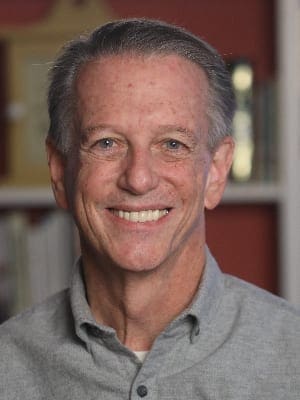A columnist for the Courier-Journal, John David Dyche, challenged whether religious persons and organizations should bring their faith-shaped values to political matters and, more specifically, whether doing so is abdicating their responsibility to tend to the poor themselves.
His column was titled “A Question for Congress: What Would Jesus Cut?” This is a good and fair question that deserves a response, despite Dyche’s transparent agenda to elevate libertarianism.
Dyche asserted that “Jesus neither confronted nor lobbied his Roman rulers.” This is, at best, inaccurate.
Jesus’ entire ministry was a challenge to the empire represented by the religious-political powers – the unseparated church and state. His constant dialogue with Pharisees and temple leaders challenged the values and priorities of the system, not just of individuals.
And in his final parable Jesus described the nations – not individuals – receiving a distinct evaluation: “I was hungry and you gave me food. Thirsty and you gave me something to drink….”
Dyche thinks “it can be credibly contended that Jesus would not concern himself with government budgeting whatsoever,” but only if one reads the gospels through the lens of American individualism.
The Bible calls upon nations, not just individuals, to be formed by a corporate responsibility toward all persons.
This call begins in the stories of origins (Cain’s libertarian question “Am I my brother’s keeper?”). It runs through the Psalms (“do justice for the orphan and the oppressed”) and the prophets (“Hear this, you that trample on the needy, and bring to ruin the poor of the land”).
Ultimately, it is voiced by the person of Jesus (“Woe to you, scribes and Pharisees, hypocrites! For you tithe mint, dill and cummin, and have neglected the weightier matters of the law: justice and mercy and faith”).
This view of faith moves salvation beyond the small, individualistic picture of the saved being delivered from hellfire, and calls the faithful to the hope of all of creation being saved from the fate of radical individualism, which is at the core of human sin.
Dyche has a point when he challenges religious communities to do more “direct ministry to the marginalized.” We can and will do more than we are presently.
But to limit churches to the sizes of our pocketbooks is to trivialize the power and potential of religious communities to enable our nation to live out its deepest values.
Church-state separation resists the establishment of one religious group over another. But it was never intended to limit the important role of religious groups to speak truth to power, to stand up to Pharaohs and Caesars on behalf of the powerless, to remind America of its highest ideals “that all men are created equal; that they are endowed by their Creator with certain unalienable rights,” that we have constituted ourselves “to promote the common welfare.”
Herein is freedom – not in avoiding the accountability and compassion implicit in our common bond, but in the liberty to join hands as diverse people in bringing God’s kingdom, with all of its political implications, here on earth, as in heaven.
Joe Phelps is pastor of Highland Baptist Church in Louisville, Ky. A version of this column appeared previously on his blog.
A minister in Louisville, Kentucky, for 21 years as pastor of Highland Baptist Church, Phelps is now Justice Coordinator for Earth and Spirit Center. He leads, along with Kevin Cosby, EmpowerWest, a black-white clergy coalition calling for recognition, repentance, and repair of injustices to black Louisvillians.

